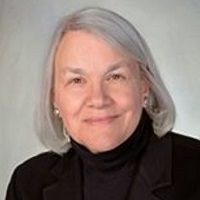Should You Opt for an Older or Younger Financial Adviser?
Do you want the wisdom that comes with age or the innovation that comes with youth? Or maybe you can have both, with an advisory team.


Profit and prosper with the best of Kiplinger's advice on investing, taxes, retirement, personal finance and much more. Delivered daily. Enter your email in the box and click Sign Me Up.
You are now subscribed
Your newsletter sign-up was successful
Want to add more newsletters?

Delivered daily
Kiplinger Today
Profit and prosper with the best of Kiplinger's advice on investing, taxes, retirement, personal finance and much more delivered daily. Smart money moves start here.

Sent five days a week
Kiplinger A Step Ahead
Get practical help to make better financial decisions in your everyday life, from spending to savings on top deals.

Delivered daily
Kiplinger Closing Bell
Get today's biggest financial and investing headlines delivered to your inbox every day the U.S. stock market is open.

Sent twice a week
Kiplinger Adviser Intel
Financial pros across the country share best practices and fresh tactics to preserve and grow your wealth.

Delivered weekly
Kiplinger Tax Tips
Trim your federal and state tax bills with practical tax-planning and tax-cutting strategies.

Sent twice a week
Kiplinger Retirement Tips
Your twice-a-week guide to planning and enjoying a financially secure and richly rewarding retirement

Sent bimonthly.
Kiplinger Adviser Angle
Insights for advisers, wealth managers and other financial professionals.

Sent twice a week
Kiplinger Investing Weekly
Your twice-a-week roundup of promising stocks, funds, companies and industries you should consider, ones you should avoid, and why.

Sent weekly for six weeks
Kiplinger Invest for Retirement
Your step-by-step six-part series on how to invest for retirement, from devising a successful strategy to exactly which investments to choose.
Age is a popular subject in the media these days, and we all know why. But age isn’t just debated at the national level about politicians. It’s also discussed closer to home about financial advisers.
If you begin working with a financial adviser when you first start your career, most likely you’ll have a financial adviser for 60 years or more through retirement. It’s unlikely to be the same individual. As Baby Boomers and older Gen Xers contemplate retirement, they’re probably wondering if their financial adviser is doing the same. That thought can be frightening, because our advisers know us so well. They know our hopes, our dreams, our goals and everything about our finances. If you’ve worked with your adviser for years, the thought of losing that individual and their constant, calming influence on your life is bound to be unsettling.
When a financial adviser has had a long career, at some point they’re considered “too old.” On the other hand, an individual who just entered the industry may be considered “too young.” Fortunately, this is an industry that employs both mature and less-seasoned individuals and reaps the rewards of embracing age diversity. Consider the following:
From just $107.88 $24.99 for Kiplinger Personal Finance
Become a smarter, better informed investor. Subscribe from just $107.88 $24.99, plus get up to 4 Special Issues

Sign up for Kiplinger’s Free Newsletters
Profit and prosper with the best of expert advice on investing, taxes, retirement, personal finance and more - straight to your e-mail.
Profit and prosper with the best of expert advice - straight to your e-mail.
With age comes wisdom. When it comes to personal finance, the more things change, the more they stay the same. Look at the stock market: Every significant directional change, be it a rally or a downturn, is triggered by some current economic, political or global event. Upon closer examination, these new events frequently exhibit similarities to past occurrences. More-seasoned advisers who have experienced a similar event in the past are often in the best position to recognize the similarities and have the most valuable advice of how to move forward and about the potential outcomes.
With youth comes innovation. The current stage of the information age is the era of machine learning, a term that refers to artificial intelligence (AI). In 1962, E.M. Rogers introduced the Diffusion of Innovations Theory, which described how new innovations are diffused, or spread, widely among a population or group. Although Rogers didn’t specify age as a determinant of adoption, others have suggested that younger individuals are more likely to adopt new innovations. The youngest members of the workforce, Millennials (1981-1996) and Gen Z (1997-2012), are digital natives. As such, they bring a unique perspective to the financial services industry because they have come of age during a tech revolution, making them open to new investment opportunities with growth potential.
In reality, the financial services industry doesn’t have a “too old or too young” problem anymore, because we have advisory teams.
The benefits of a financial advisory team
Today, the financial services industry estimates that more than half of financial advisers work on teams, and across the industry, that number is increasing. Here are three reasons a team makes sense:
- Continuity. Loss of continuity is one of a client’s main concerns when they think about losing their financial adviser. If your adviser is a member of a team, they are part of a group that share a mission and vision. While you will have a new individual you’ll get to know, everything else should be the same.
- Consistency. Financial advisory team members agree upon the team’s investment philosophy, their roles, the tools they use to make recommendations and the way they measure client success.
- Specialization. The complexity of personal finance makes it difficult for one person to be an expert in everything. The team structure allows individuals to become in-depth experts in one or more areas of expertise. The breadth of the expertise enables them to successfully advise many types of clients and consult with their colleagues on complex client situations.
Finally, many financial advisers who aren’t on teams have informal agreements with other financial advisers who will take over their practice in the event of an emergency. If you work with an adviser who’s a sole practitioner, ask if they’ve entered into that type of agreement with another adviser. If they have, ask to meet that individual so you aren’t taken by surprise.
The views expressed are subject to change and do not necessarily reflect the views of Thornburg Investment Management, Inc. This information should not be relied upon as a recommendation or investment advice and is not intended to predict the performance of any investment or market.
This is not a solicitation or offer for any product or service. Nor is it a complete analysis of every material fact concerning any market, industry, or investment. Data has been obtained from sources considered reliable, but Thornburg makes no representations as to the completeness or accuracy of such information and has no obligation to provide updates or changes. Thornburg does not accept any responsibility and cannot be held liable for any person’s use of or reliance on the information and opinions contained herein.
Investments carry risks, including possible loss of principal.
Related Content
- Is Your Financial Adviser Doing a Good Job for You?
- Eight Times You Should Contact Your Financial Adviser
- A Virtual Financial Adviser Could Be the Right Fit for You
- Can I Hire a Financial Adviser to Manage My 401(k)?
- Should I Pay a Financial Adviser an Assets Under Management Fee?
Profit and prosper with the best of Kiplinger's advice on investing, taxes, retirement, personal finance and much more. Delivered daily. Enter your email in the box and click Sign Me Up.

Jan Blakeley Holman is director of advisor education at Thornburg Investment Management. She is responsible for identifying and creating advisor education programs that support financial advisors as they work with their clients and prospects. Jan has spent more than four decades in the financial services industry. Over the course of her career, she’s served as a financial advisor, an advisor to financial advisors and a financial services corporate executive. Visit Thornburg’s website to enjoy more of Jan’s articles and podcasts.
-
 Dow Adds 1,206 Points to Top 50,000: Stock Market Today
Dow Adds 1,206 Points to Top 50,000: Stock Market TodayThe S&P 500 and Nasdaq also had strong finishes to a volatile week, with beaten-down tech stocks outperforming.
-
 Ask the Tax Editor: Federal Income Tax Deductions
Ask the Tax Editor: Federal Income Tax DeductionsAsk the Editor In this week's Ask the Editor Q&A, Joy Taylor answers questions on federal income tax deductions
-
 States With No-Fault Car Insurance Laws (and How No-Fault Car Insurance Works)
States With No-Fault Car Insurance Laws (and How No-Fault Car Insurance Works)A breakdown of the confusing rules around no-fault car insurance in every state where it exists.
-
 For the 2% Club, the Guardrails Approach and the 4% Rule Do Not Work: Here's What Works Instead
For the 2% Club, the Guardrails Approach and the 4% Rule Do Not Work: Here's What Works InsteadFor retirees with a pension, traditional withdrawal rules could be too restrictive. You need a tailored income plan that is much more flexible and realistic.
-
 Retiring Next Year? Now Is the Time to Start Designing What Your Retirement Will Look Like
Retiring Next Year? Now Is the Time to Start Designing What Your Retirement Will Look LikeThis is when you should be shifting your focus from growing your portfolio to designing an income and tax strategy that aligns your resources with your purpose.
-
 I'm a Financial Planner: This Layered Approach for Your Retirement Money Can Help Lower Your Stress
I'm a Financial Planner: This Layered Approach for Your Retirement Money Can Help Lower Your StressTo be confident about retirement, consider building a safety net by dividing assets into distinct layers and establishing a regular review process. Here's how.
-
 The 4 Estate Planning Documents Every High-Net-Worth Family Needs (Not Just a Will)
The 4 Estate Planning Documents Every High-Net-Worth Family Needs (Not Just a Will)The key to successful estate planning for HNW families isn't just drafting these four documents, but ensuring they're current and immediately accessible.
-
 Love and Legacy: What Couples Rarely Talk About (But Should)
Love and Legacy: What Couples Rarely Talk About (But Should)Couples who talk openly about finances, including estate planning, are more likely to head into retirement joyfully. How can you get the conversation going?
-
 How to Get the Fair Value for Your Shares When You Are in the Minority Vote on a Sale of Substantially All Corporate Assets
How to Get the Fair Value for Your Shares When You Are in the Minority Vote on a Sale of Substantially All Corporate AssetsWhen a sale of substantially all corporate assets is approved by majority vote, shareholders on the losing side of the vote should understand their rights.
-
 How to Add a Pet Trust to Your Estate Plan: Don't Leave Your Best Friend to Chance
How to Add a Pet Trust to Your Estate Plan: Don't Leave Your Best Friend to ChanceAdding a pet trust to your estate plan can ensure your pets are properly looked after when you're no longer able to care for them. This is how to go about it.
-
 Want to Avoid Leaving Chaos in Your Wake? Don't Leave Behind an Outdated Estate Plan
Want to Avoid Leaving Chaos in Your Wake? Don't Leave Behind an Outdated Estate PlanAn outdated or incomplete estate plan could cause confusion for those handling your affairs at a difficult time. This guide highlights what to update and when.